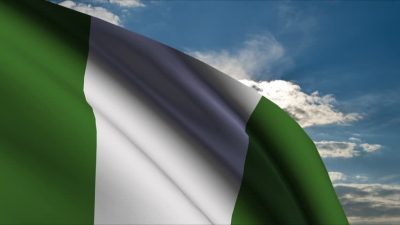By
Durodola Tosin
Nigeria’s leadership roles in Africa have been evident since its year of independence. It is a well-known fact that over the years, Nigeria’s foreign policy has consistently been Afro-centric in nature. This is based on the belief that the security well-being of the country is hinged on the security and material wellbeing of its poor neighbours.
In this respect, successive political regimes in the country from the administration of Tafawa Balewa to the present government of President Buhari have made pan-African solidarity and cooperation an unrenounceable goal. This is in recognition of the sad events of the Nigerian civil war in which some powerful enemies of Nigeria took advantage of its poor neighbours to support the rebellion in Nigeria by using their territories and waterways.
Since this experience, Nigeria has attached great importance, not only to the promotion and defence of its neighbours’ socio-economic and security interests, but also to defending the dignity of the black race the world over. In this regard and in its tireless efforts of wiping out colonialism and white minority rule in the continent, Nigeria has been in agreement with the cardinal principles and objectives which the United Nations stand for.
With the quest to assume its leadership role in Africa, Nigeria has made significant contributions to the attainment of independence of African countries such as Angola and Zimbabwe and also played dominant roles in the struggle against apartheid and white minority rule in South Africa which not only saw to the achievement of independence of those countries but also led to the establishment of a multi-racial government in South Africa. Also, Nigeria has devoted her time, money and energy to political community building in Africa and towards mutually beneficial regional and continental integration.
Moreover, Nigeria was not only instrumental in the formation of the disbanded Organisation of African Unity (OAU) in 1963 and the Economic Community of West African States (ECOWAS) in 1975, but has also been in the driving seat of these organisations by playing a prominent role in their funding. Nigeria is a motor force behind the African Union (AU) and the New Partnership for Africa’s Development (NEPAD), in addition to funding ECOWAS.
Nigeria has also showcased its leadership qualities in steps towards building capacity for the resolution of conflict and restoring or installing democracy, peace and stability in several brother African countries where warlords or power hungry militants had seized power. Nigeria single-handedly initiated the ECOWAS Monitoring Group (ECOMOG) deployed for peacekeeping and peace enforcement operations in Liberia and Sierra Leone from 1989 to 2002. The burden of those peace operations was borne largely by Nigeria.
Furthermore, Nigeria has over the years, participated in various peace keeping operations in war-torn African countries and beyond under the umbrellas of various multilateral organisations such as the UN, OAU and ECOWAS. The human and financial commitments to such noble ventures is unrivalled by any other country in the continent.
Nigeria has also assumed its leadership role in the area of terrorism. Until recently, terrorism appeared to be a distant concern for Nigeria. However, it has become the new frontier in security challenges facing Nigeria and other West African states and is increasingly dominating security discourses in the sub-region and at home in Nigeria in the case of Boko Haram. However, Nigeria has not failed in displaying her prowess as a regional leader in Africa. Nigeria is now mobilising ECOWAS states to check terrorism and cross-border banditry and other crimes and is deploying its military presence accordingly.
Also, the question of debt overhangs, which has continued to be a major nightmare for most third world countries, particularly African countries, has also been assiduously tackled by the country over the last six years. Nigeria has spearheaded the campaign for debt relief. The campaign has been effectively carried to the doorsteps of the western creditor nations and their institutions like the Paris and London clubs.
Furthermore, Nigeria’s concerted efforts in making a case for African emancipation from the shackles of poverty, illiteracy, and underdevelopment at world level has began to yield some positive results. For example, the recent establishment of the UN Millennium Development Goals (MDGs), which are geared towards halving the poverty level in Africa.
In recognition of its performance, Nigeria has been honoured with the leadership of the African Union Peace and Security Council (PSC) – the most active of the AU’s special organs charged with the responsibility of peace building, conflict resolution and rehabilitation in Africa.
In conclusion, the above glaring indisputable facts have put Nigeria on a pedestrian of leadership in Africa. Nigeria is not just a country in Africa; it is the essential nation and the test case for the entire continent. Nigeria tackles all the problems, potentials, and promise of Africa as the continent moves further into the new millennium. This is a reason why some African states declare their unalloyed support for Nigeria’s bid for one of the UN Security Council Permanent Seats.



No Comments Yet!
You can be first to comment this post!